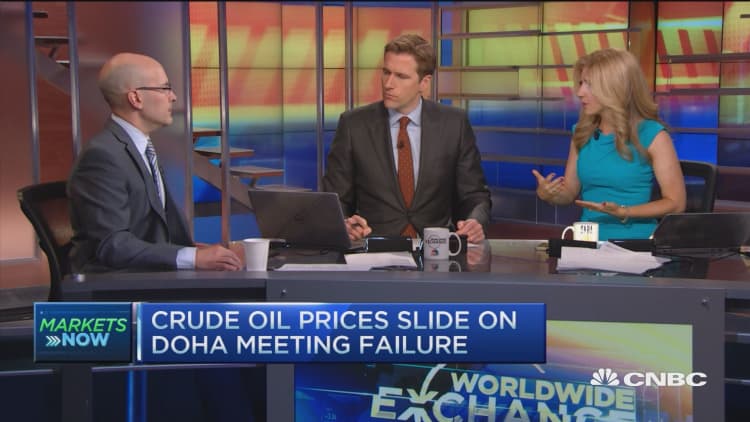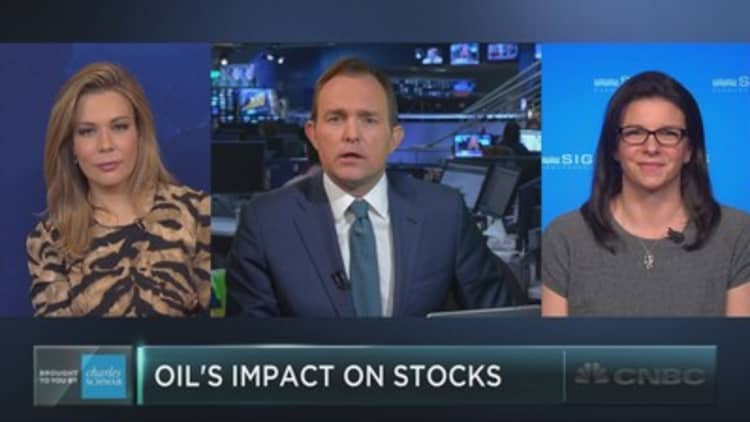
Investors might want take a step back from what's happening in Doha, or not happening on the oil production freeze front as it were, said Talley Leger, global strategist at Fundstrat.
"Remember in the U.S., [crude] production is down year over year," he told CNBC's "Worldwide Exchange" on Monday. "That's happening at a time when refiner demand is picking up as well as a demand for gasoline."
While the lack of an output freeze agreement among OPEC and non-OPEC producers on Sunday is still a setback in the thesis for higher oil prices, Leger is looking toward earnings, not oil, as a key driver for the U.S. stock market.
"Earnings are front and center," Leger said. "This dollar weakness does a lot to take the pressure off the topline growth in the U.S."
Weakness in the dollar should trickle down to companies' bottom lines and lift earnings, in turn lifting U.S. stocks, according to Leger. "We're still very optimistic. We think there's still more upside in store."

As far as sector choices, Leger said technology and U.S. industrials should benefit from the improving global backdrop.
He and his team at Fundstrat are also bullish on Europe, saying the "heavyweight" European financial sector overreacted to the downside, making room for a catch-up phase.
"Financial conditions have been relaxing in Europe, we also have euro area lending that's growing," Leger said. He mentioned high dividend yields on financials that should do well in a negative interest rate policy environment.
China is another bright spot, said Leger. "I think to a degree some market participants are underestimating the ability and willingness of policy-makers [there] to support the economy."




